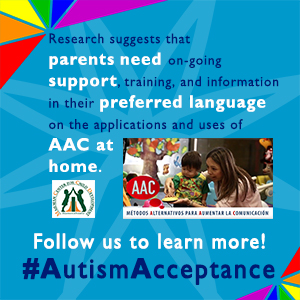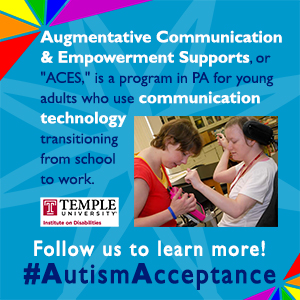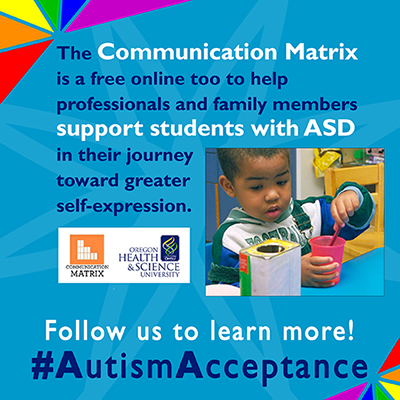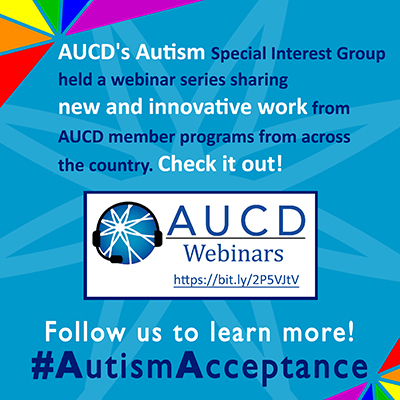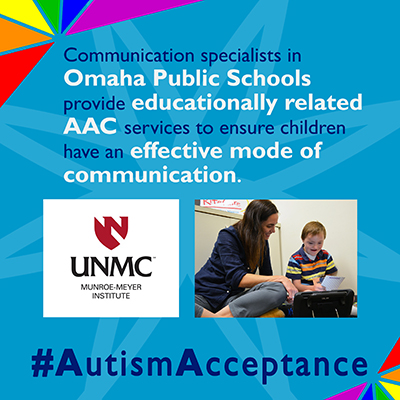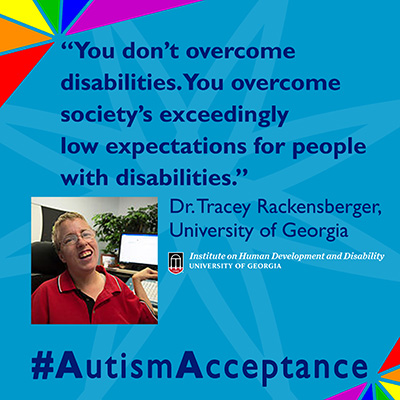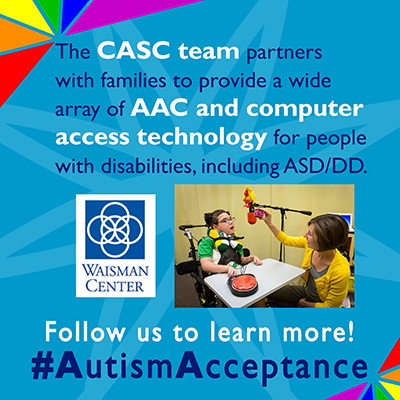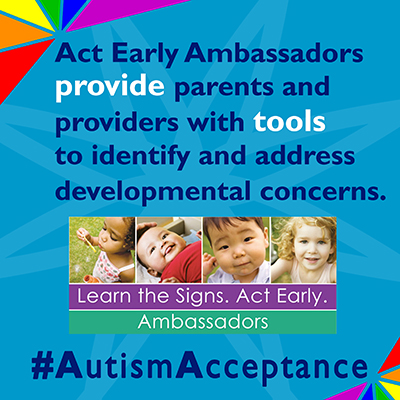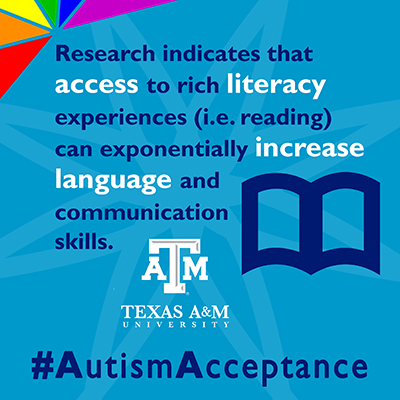April 2019: Autism Acceptance Month
April 1, 2019
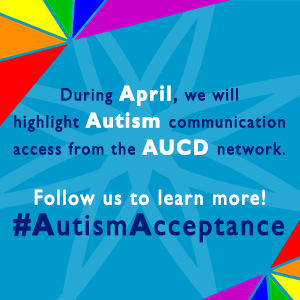
|
See below for a full listing of all of the April 2019 campaign posts to date. April is widely recognized as Autism Month.
AUCD, our members, and partners have used this as an opportunity to share information relating to Autism Spectrum Disorders. The month has traditionally been framed as Autism Awareness Month, and April 2 as World or International Autism Awareness Day. In recent years you may have noticed that AUCD has shifted to include both "Awareness" and "Acceptance" in our April messaging. 2019 marks our full transition to April as Autism Acceptance Month.
This shift reflects input from autistic and other community leaders, as well as our commitment to sharing how AUCD network members are advancing support, research, evidence-based interventions, inclusiveness, and advocacy for the human and civil rights of all people with ASD/DD. We hope you will consider joining us in messaging that goes beyond awareness and promotes full acceptance and appreciation of the many contributions of autistic people.
Why Autism?
In December 2007, the United Nations (UN) General Assembly designated April 2 as World Autism Awareness Day. First observed in 2008, it is one of only a small number of condition-specific UN days. Its purpose is to bring international attention to this complex developmental disorder that affects as many as 1 in 59 children born today, according to estimates from the Centers for Disease Control and Prevention (CDC).In December 2007, the United Nations (UN) General Assembly designated April 2 as World Autism Awareness Day. First observed in 2008, it is one of only a small number of condition-specific UN days. Its purpose is to bring international attention to this complex developmental disorder that affects as many as 1 in 59 children born today, according to estimates from the Centers for Disease Control and Prevention (CDC).
Why focus on communication?
Communication is a basic human right by which people can exercise their freedom of expression and opinion in a manner of their choosing. Many people with disabilities, including autism, experience complex communication challenges and AUCD firmly believes that everyone should have access to communication systems that meet their needs.
Why AUCD
AUCD network member centers/programs in every U.S. state and territory are playing significant roles in the production and promotion of best practices around communication, including the use of Augmentative and Alternative Communication (AAC). In our collective pursuit of communication for all, we recognize the structural barriers that may impede access. Leaders across the AUCD network are engaged in research, education, and services that seek to reverse outcomes resulting from the denial of communication rights, including: poor school outcomes, increased risk of abuse and neglect, negative health outcomes, barriers in workforce participation, and decreased decision making in community life. In addition, we recognize that this work must involve true partnerships between autistic leaders and self-advocates, families and support systems, educators, researchers, service providers, assistive technology developers, and others to enact lasting change.
What Can You Expect This Month?
During the month of April, AUCD joins autistic individuals, their families, and those who support them to increase public acceptance and appreciation of the diverse range of abilities and talents autistic individuals possess.
This year, AUCD staff will be using Facebook (@AUCDnetwork) and Twitter (@AUCDnews) to highlight AUCD network members engaged in the use of AAC for people with disabilities, from providing direct services to engaging in technical assistance to their local communities. Whenever possible, we'll call attention to autistic engagement in network initiatives around the right to communicate, from planning to implementation. Featured content will focus on a wide range of relevant topics, including:
- Dissemination of resources, as well as evidence-based and promising strategies to support access to AAC
- Culturally competent best practices for literacy and communication access at home, school, in the community, and across the lifespan
- Transforming outcomes through improved access to communication to support decision making across all aspects of individuals' lives
Make sure to follow AUCD on social media, stay tuned to your newsfeeds, and use the #AutismAcceptance hashtag all month long!
April 2019 Posts
Following is the complete listing of posts for April 2019. Click on the links below to learn more.

